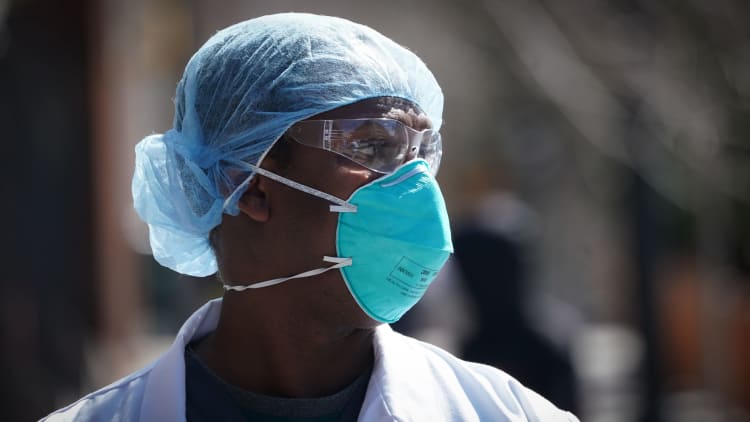For months, states and local governments have tried various strategies to contain the coronavirus pandemic, including by shutting down businesses and sending people to work from home. But new research indicates such measures do little to help protect some of the communities hit hardest by the virus and who disproportionately hold jobs that must be done in-person. According to a new report from the Urban Institute, more than half of all Black, Latino and Native American workers hold essential and nonessential jobs that must be done on-site in close proximity with others, a greater share than White workers.
Researchers found that 51% of Black, 53% of Hispanic and 51% of Native American workers hold a job that must be done in-person, compared with 41% of White workers. A slightly higher share of Asian workers, 42%, also hold in-person and high-contact jobs. These workers hold either essential jobs in critical infrastructure, such as health care or transportation, or nonessential jobs that can't be done from home, such as restaurant work or in-store retail.
Lisa Dubay, a senior fellow in the Health Policy Center at the Urban Institute and a lead researcher of the report, tells CNBC Make It that it's crucial to consider the protections needed not just for essential workers, but also those working for nonessential businesses that remain open during the pandemic. "They're also at risk, and they're often forgotten," she says.
Some workers of color with in-person jobs are significantly more likely to lack health insurance coverage: 16% of Black workers and 28% of Latino and Native American workers are uninsured, compared with 10% of White workers and 9% of Asian workers.
Black, Asian and Latino workers are also more likely to use public transportation to get to work and therefore face greater risk of exposure to Covid-19.
Furthermore, Asian, Latino, Black and Native American workers are most likely to live in multigenerational households that include older adults who may become more severely ill if they contract Covid-19; these workers also more likely to have young children who require adult supervision and must attend school or a care facility in-person, further increasing the possibility of virus transmission outside the home.
Policies for better public health, workplace safety and health-care access can help
With Covid-19 cases surging around the country, Dubay and Urban researchers say it's crucial to get community spread down: "Protecting these workers now can help reduce the burden of Covid-19 cases and deaths on communities of color," the report reads. "Given the multifaceted determinants of inequities in virus exposure, policy solutions will need to be simultaneously broad and targeted, covering public health practices, workplace policies, and access to health care."
Researchers recommend several community-level public health practices, such as requiring masks and social distancing outside the home; limiting gatherings; and improving access to testing and contact tracing.
Workplaces can increase safety measures by requiring masks and social distancing for workers and customers; providing physical barriers between workers and customers; conducting routine temperature checks; improving indoor airflow; and providing universal paid sick leave to encourage workers to isolate after exposure or sickness while keeping them financially secure.
The Families First Coronavirus Response Act enacted in April provides some workers with two weeks of partially paid sick leave, but critics say too many workers remain ineligible. The provision expires at the end of 2020.
As the CDC and state officials plan how to distribute a forthcoming Covid-19 vaccine, experts agree to prioritize health-care and essential workers who must work in close proximity with others. But Urban researchers note that "given past abuses and disinvestments in communities of color, health care providers and government officials will need to earn and sustain trust regarding the safety of any Covid-19 vaccine."
"Getting broad take-up of the vaccine is going to require a lot of outreach efforts," Dubay adds. "Communities of color need to be involved in developing those messages, and they have to be provided by trusted messengers."
State and local governments also play a role in enforcing greater safety measures for residents who have no choice but to work in-person, such as by enforcing mask mandates and social-distancing, as well as providing supplemental paid sick leave. However, Dubay says many are facing budget shortfalls without any Congressional action for renewed pandemic-relief stimulus.
"If these workers aren't protected," Dubay says, "we'll have increasing inequities in terms of racial disparities in cases and deaths that's going to continue and magnify over the next four to six months."
Check out: Highest-ever Amex Gold Card welcome bonus is worth up to $600 in gift cards
Don't miss:
More than 13 million people could lose their unemployment benefits at the end of December
3 in 4 workers want to return to an office in the future—how they expect the workplace to change
Covid-19 patients twice as likely to be working from an office instead of home, CDC finds



